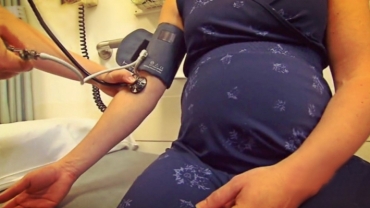Gestational diabetes is a temporary form (in most cases) of diabetes in which the body does not produce adequate amounts of insulin to deal with sugar during pregnancy. It may also be called glucose intolerance or carbohydrate intolerance.
Pregnant women who have never had diabetes before but who have high blood glucose (sugar) levels during pregnancy are said to have gestational diabetes. Based on recently announced diagnostic criteria for gestational diabetes, it is estimated that gestational diabetes affects 18% of pregnancies.
We don’t know what causes gestational diabetes, but we have some clues. The placenta supports the baby as it grows. Hormones from the placenta help the baby develop. But these hormones also block the action of the mother’s insulin in her body. This problem is called insulin resistance. Insulin resistance makes it hard for the mother’s body to use insulin. She may need up to three times as much insulin.
Gestational diabetes starts when your body is not able to make and use all the insulin it needs for pregnancy. Without enough insulin, glucose cannot leave the blood and be changed to energy. Glucose builds up in the blood to high levels. This is called hyperglycemia.
About video: This video begins by describing the process by which glucose is metabolised by cells. The cause of gestational diabetes is not known but the complications are mentioned. The methods to prevent it are then discussed.
- 6600 views













